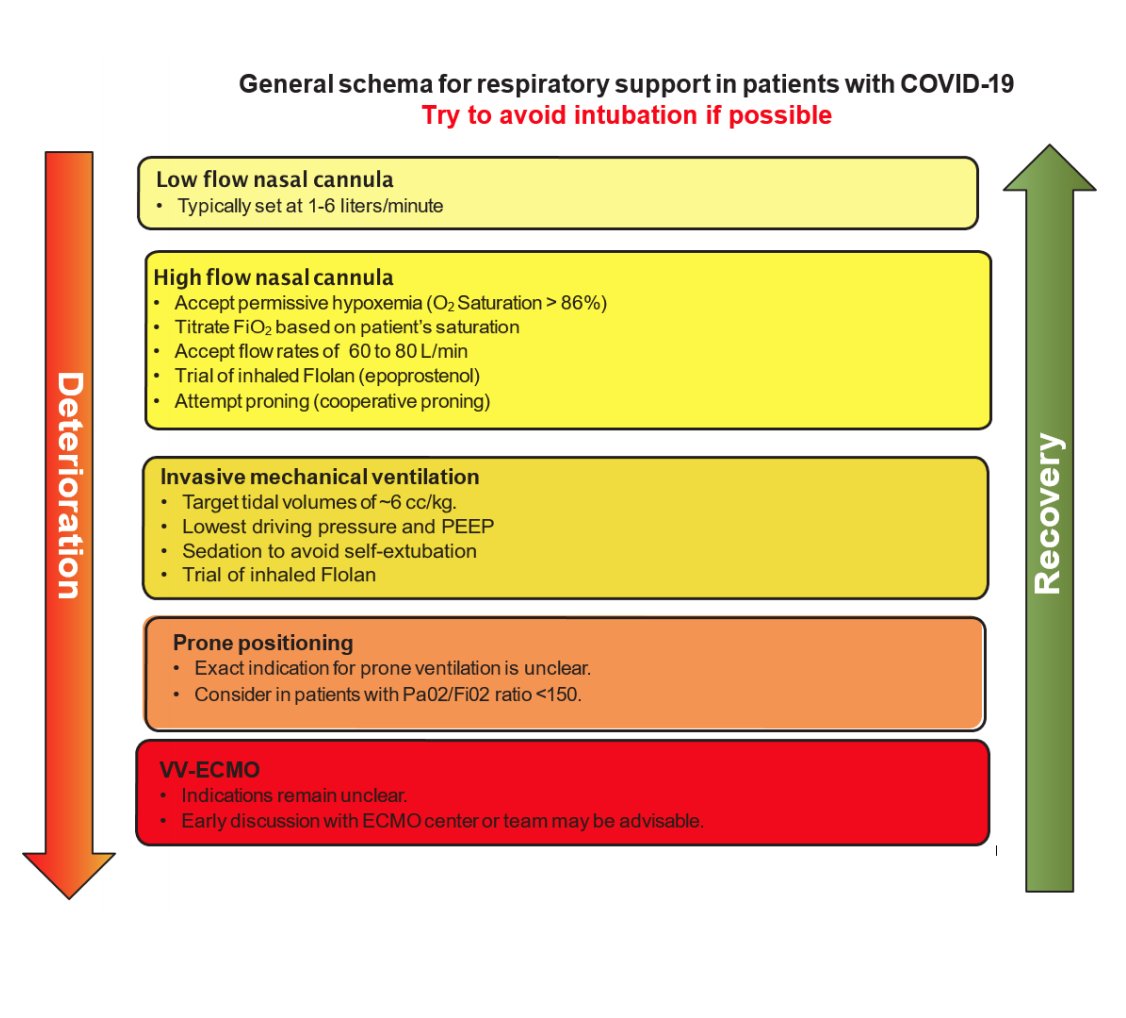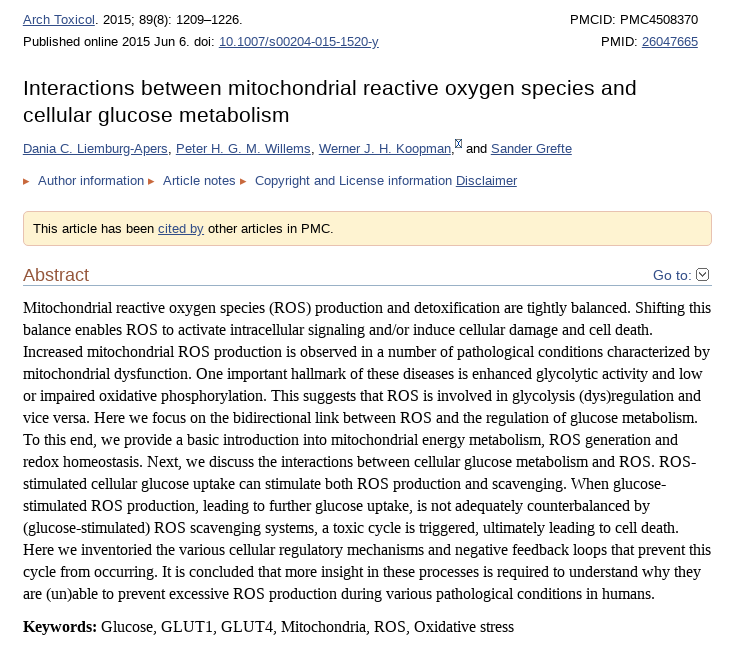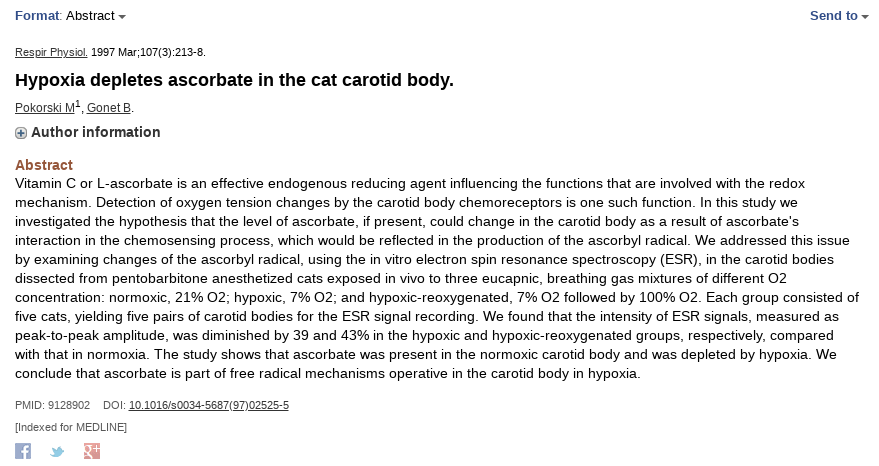evms.edu/media/evms_pub…
The EVMS guidelines take an expansive, proactive approach to case management.
They try to bet on favorable risk-benefit trade-offs, even if some suggested items (e.g. zinc) turn out not to matter.
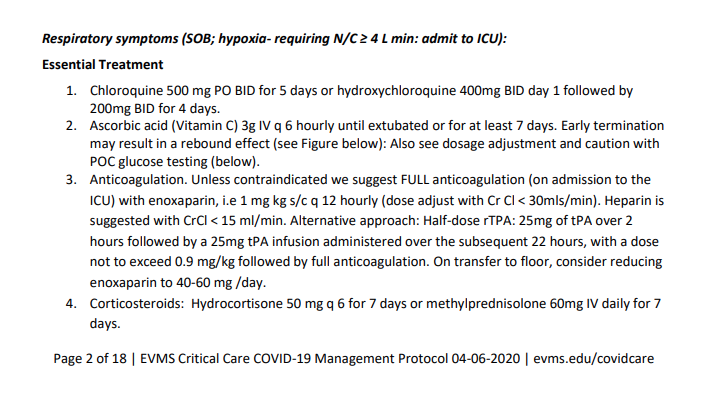


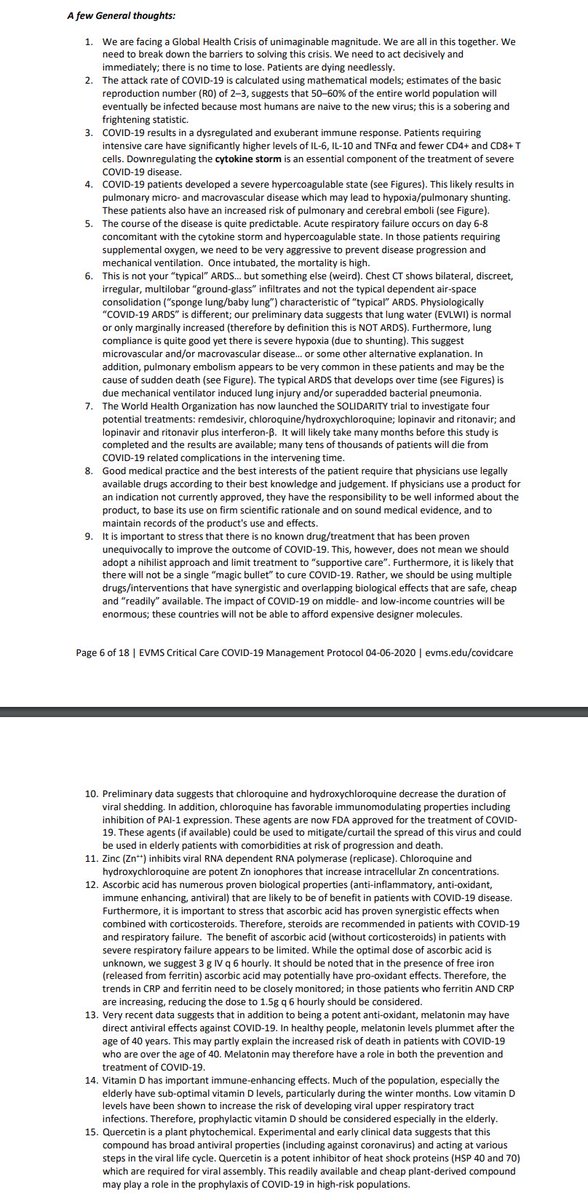
- hydroxychloroquine
- ascorbate
- early anticoagulants
- low-dose short-course corticosteroids
I don't believe zinc is very relevant, but fairly harmless.
Melatonin is a nice suggestion. Helps in influenza, reasonable mechanism.
It is crucial to exercise informed judgment in identifying and acting on favorable risk-reward trade-offs in treatment decisions.
The curse of dimensionality dictates that you will never have an RCT for all possible combinations of parameters.
- treatments with different mechanisms that do well in similar RCTs are usually effective combined if no interactions
- low-risk treatments need less evidence
- high-risk treatments need more evidence
- inaction is a treatment, has risks
- listen to practitioners

